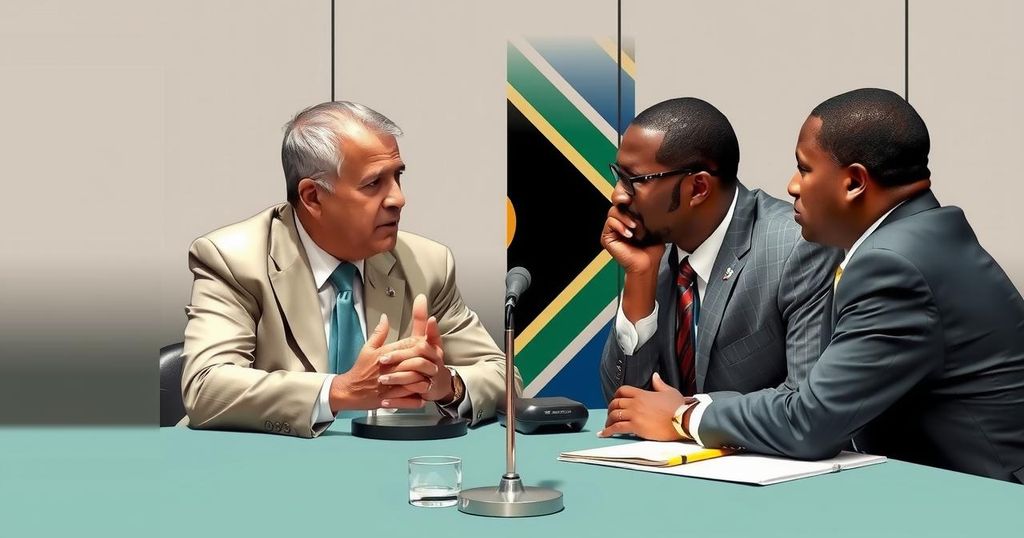Politics
AFRICA, CORRUPTION, DANIEL CHAPO, DEMOCRACY, EAST, FRELIMO, HUMAN RIGHTS, IB, JOHANNESBUR, JOHANNESBURG, KENYA, KHANYO FARISE, MALELANE, OPTIMIST PARTY FOR THE DEVELOPMENT OF MOZAMBIQUE, PLATAFORMA ELEITORAL DECIDE, RICH MASHIM, SOUTH AFRICA, UNIVERSITY OF JOHANNESBURG, VENANCIO MONDLANE
Fatima Khan
0 Comments
Mozambique Political Crisis: South Africa’s Role in Mediation Efforts
Mozambique faces a profound political crisis following disputed presidential elections, with the ruling Frelimo party declaring victory amidst allegations of fraud. Protests have resulted in significant violence and fatalities. South Africa is now mediating discussions to seek a resolution, with calls for a transparent electoral recount and considerations for a power-sharing agreement. The crisis is compounded by systemic issues such as poverty and unemployment, indicating the need for broader reforms.
Mozambique is currently facing a political crisis following the recent presidential elections, which have been marred by allegations of election fraud and civil unrest. Daniel Chapo, representing the ruling party Frelimo, was declared the winner with 71% of the votes. However, his opponent, Venancio Mondlane of the Optimist Party for the Development of Mozambique, has contested these results, citing widespread vote rigging. The consequent protests have led to over 110 fatalities since late October, drawing international attention and prompting South Africa to mediate discussions aimed at resolving the impasse.
As South Africa assumes the role of negotiator, ministers from both countries convened in Malelane to establish a pathway toward a resolution. Analysts such as Rich Mashimbye from the University of Johannesburg have suggested that these talks may serve as a valuable starting point, contingent on evolving to involve heads of state and opposition leaders later. There have been calls for a transparent recount involving neutral parties to restore public confidence in the electoral process.
Furthermore, political analysts propose the notion of a power-sharing agreement as a potential remedy, reminiscent of successfully mediated deals in Zimbabwe and Kenya. However, skepticism persists regarding the SADC’s capability to effectively facilitate such discussions, given its compromised credibility. The opposition’s discontent extends beyond electoral grievances to systemic issues such as poverty and unemployment, which have fueled current unrest and dissatisfaction with long-standing ruling parties in the region.
The political crisis in Mozambique stems from the contentious electoral process that saw Daniel Chapo, a candidate from the ruling Frelimo party, declared the winner amid serious allegations of vote rigging. Protests erupted in response, leading to violent clashes and a worrying death toll. Analysts suggest that mediation from South Africa and potential discussions on power-sharing could provide a solution, as regional stability remains a pressing concern. The upcoming ruling by the Constitutional Council on the disputed election results is expected to significantly impact the situation, with doubts expressed regarding its impartiality.
The ongoing political unrest in Mozambique highlights the complexities surrounding election disputes, the need for mediated dialogue, and the potential for power-sharing agreements to restore stability. As South Africa takes the lead on negotiations, the role of civil society and external actors will be crucial to facilitate a transparent electoral process. Furthermore, a holistic approach addressing underlying economic challenges is necessary to prevent future conflicts and restore public trust in governance.
Original Source: www.aa.com.tr




Post Comment